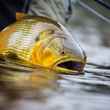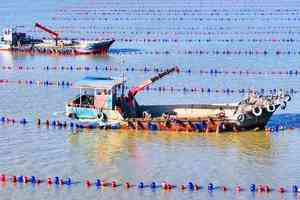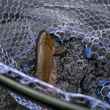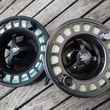The International Commission for the Conservation of Atlantic Tunas (ICCAT) met this past week in Turkey to negotiate on new protection measures affecting bluefin tuna, swordfish and several species of shark. The front-and-center topic of the meeting was whether or not to implement a digital tracking system for reporting catches of bluefin tuna. Proponents have argued that the current paper tracking system is inaccurate and prone to abuse. A study by the Pew Environment Group indicated that, last year, the actual amount of Mediterranean bluefin tuna meat that entered the market was over 140% more than was declared. Ultimately, the 48 member state commission agreed, voting to implement the requirement for an electronic catch tracking system to replace paper tracking methods.
The commission also voted to decrease the minimum length of fishing vessels that must be reported to the ICCAT, from 20 feet to 12 feet. Advocates of this action are describing this as an important step, as recent evidence has shown that a high number of smaller vessels have been fishing illegally for both bluefin tuna and swordfish.
Also addressed were some issues surrounding species threatened by incidental catch. Research has shown that some shark species have shown population declines of as high as 80% due to incidental catches. The commission agreed to require that incidentally caught silky sharks must be released alive. These sharks are commonly killed by fisherman who catch these sharks when trying to snare tuna or swordfish. Similar proposals in regards to the porbeagle shark were not approved.
While many advocates of regulations approved at the ICCAT meeting are pleased by the progress made this year, not everyone is satisfied. For instance, the World Wildlife Federation (WWF) issued a statement declaring that it is "disappointed by the insufficiency of measures to improve traceability of bluefin tuna – and the management of Mediterranean swordfish – adopted today by ICCAT, the Atlantic tuna fisheries commission, and cautions that bolder and more complete steps are urgently required.”
The criticisms of the WWF revolve around the lack of data surrounding bluefin tuna that are transferred to fish farms around the Mediterranean for fattening and subsequent sale. Describing the actions taken involving bluefin tuna as "half-measures", the WWF stated that "no matter how comprehensive and functional [the electronic catch documentation] mechanism, WWF is concerned that the continued absence of data on quantity and size of bluefin tuna caged in fattening farms creates a black hole and provides an easy facility for the laundering of illegal, unregulated and unreported catches of Mediterranean bluefin tuna."
The WWF was also disappointed by the lack of adoption of more stringent regulations involving swordfish catch regulations.






























Comments